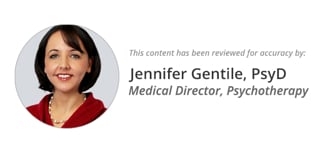OCD treatment online

OCD symptoms can vary, but patients typically experience:
- Compulsive behavior
- Impulsive behavior
- Agitation
- Anxiety
- Depression
- Food aversion
- And more.
Diagnosing and Treating OCD Online
Obsessive Compulsive Disorder (OCD) is a common, chronic, and long-lasting disorder. Generally, if you have reoccurring thoughts, they are considered obsessions and the behaviors that come with OCD are considered compulsions. These occur when one feels the urge to repeat a task/thing over and over. There is a difference between obsessions and compulsions.
Obsessions are repeated thoughts, mental images, or urges that typically cause anxiety. Some symptoms may include:
- Fear of germs or contamination
- Unwanted, forbidden, or taboo thoughts that may involve sex, religion and harm
- Wanting things to be symmetrical or in a perfect order
- Aggressive thoughts towards oneself or others
Compulsions are repetitive behaviors in response to an obsession. Some symptoms may include:
- Excessive cleaning
- Excessive handwashing
- Ordering and arranging things in a particular way
- Repeatedly checking on things
- Examples include checking to see if the oven is off, the door is locked, etc.
- Compulsive counting
During a video consult on Amwell, your therapist will ask you a series of targeted questions to determine the best treatment plan. This is based on duration, severity of symptoms and you or your child's medical history. Questions about your work and home environment and habits may also be discussed.
Once a diagnosis has been made, your doctor will go over the risks and benefits of the various treatment plans. Depending on the duration and severity of OCD, your treatment plan may include:
- A combination of therapy and medications
- Behavioral therapy
Behavioral therapy is when people are put in situations that cause or trigger their obsessions and anxiety. They are encouraged not to perform the OCD rituals they would typically perform.

